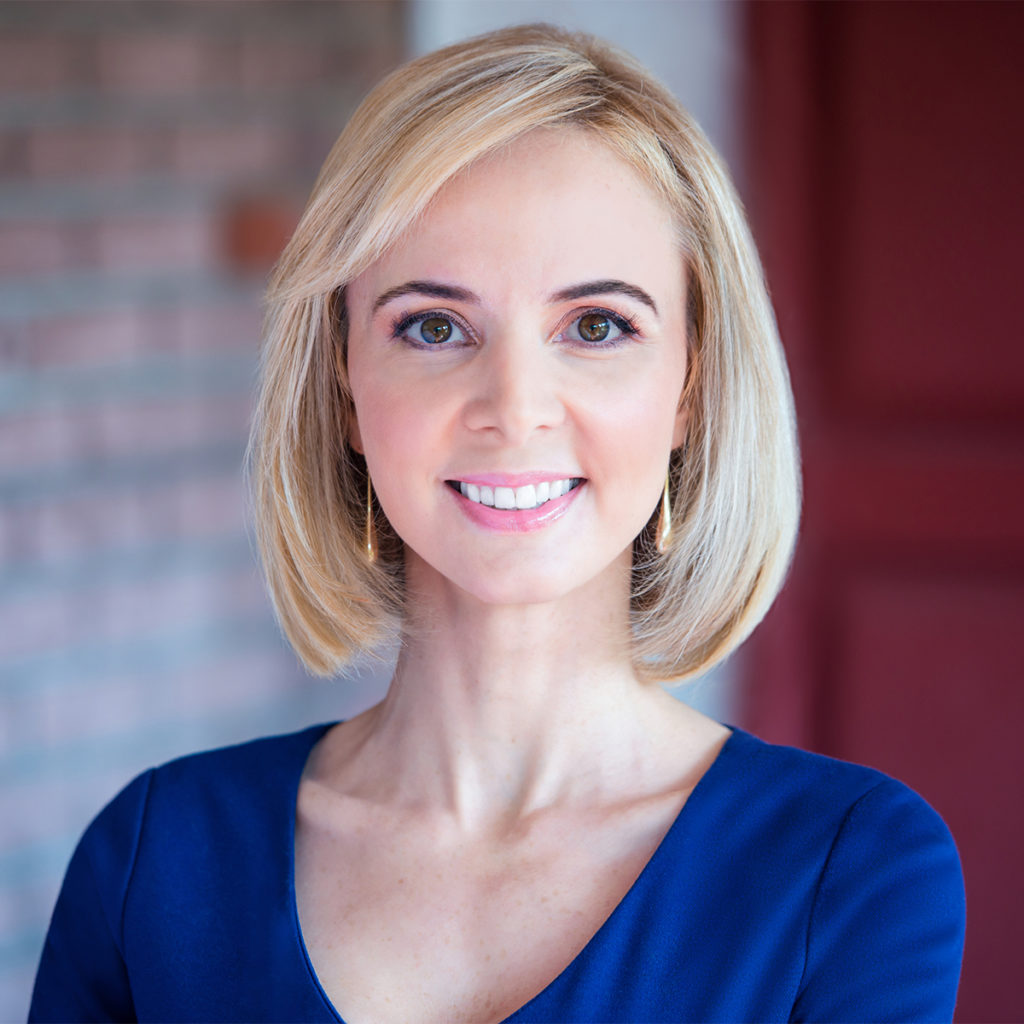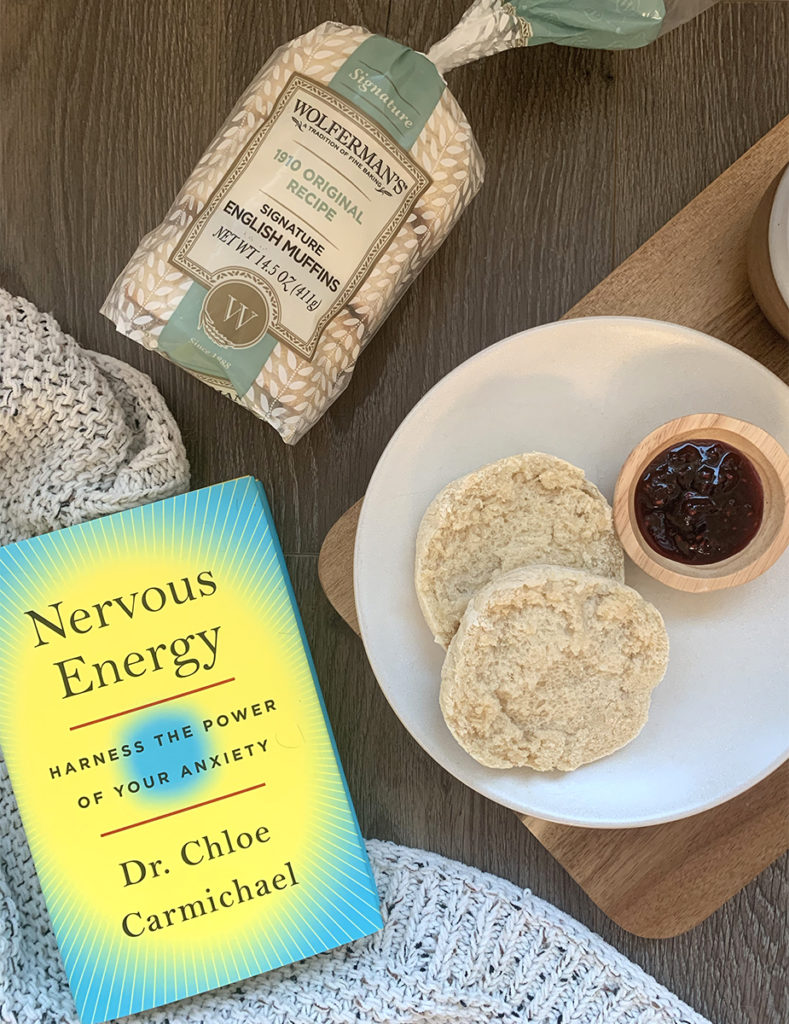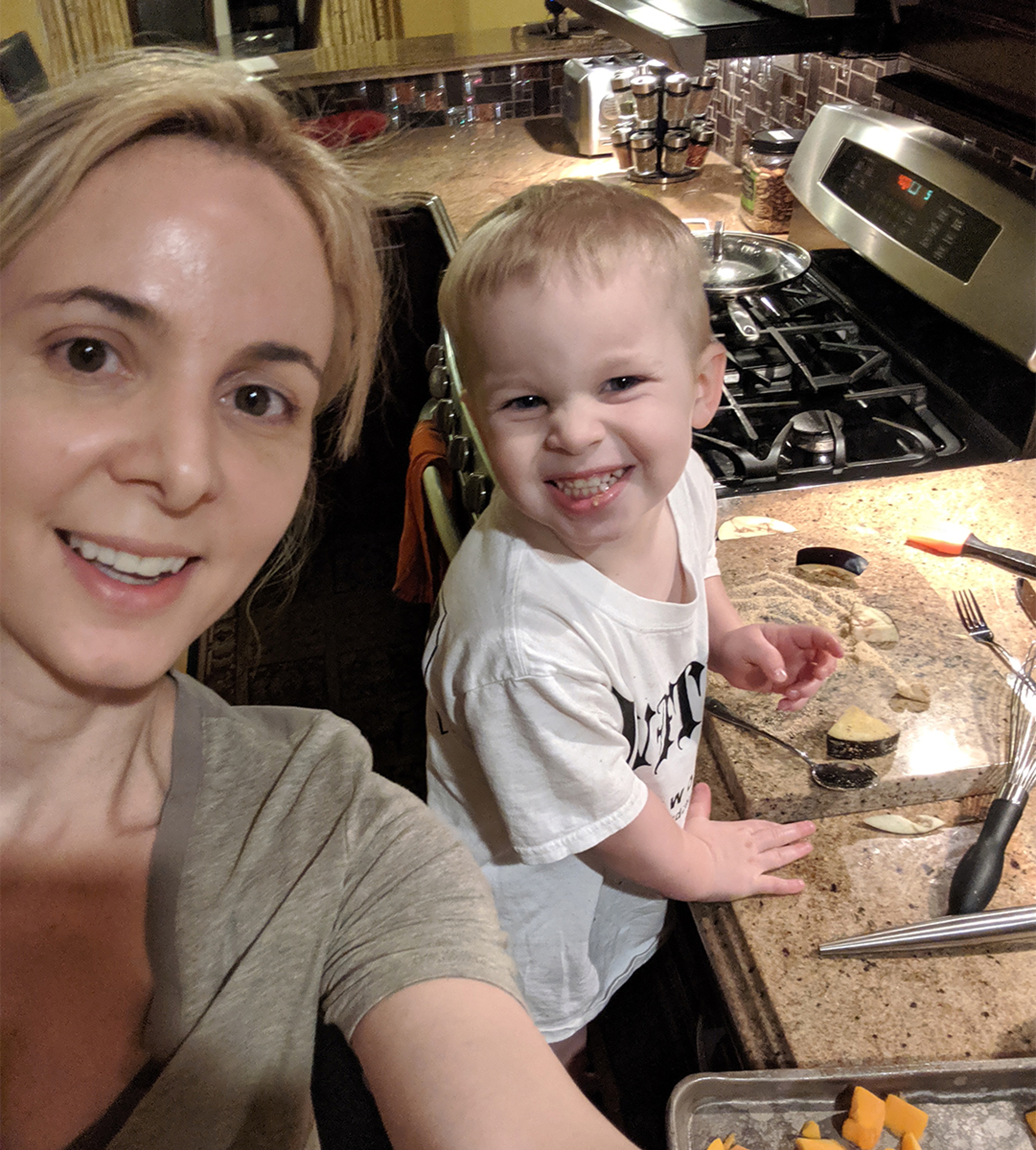Use Your Stress to Boost Your Parenting Skills with Dr. Chloe Carmichael
Dr. Chloe Carmichael says that by harnessing your anxiety, you can enhance your effectiveness with your children.
Mar 04, 2022

Though we all want to make things better for our kids, anxiety, perfectionism, or self-doubt can get in the way. Dr. Chloe Carmichael, a member of 1-800-Flowers.com's Connectivity Council, can help. The Florida-based clinical psychologist and author of Nervous Energy: Harness the Power of your Anxiety specializes in helping driven, stressed-out, high-energy people get a handle on their nerves to marshal their power rather than be slowed by them.
“I work well with high-functioning, nervous energy types, because I’ve got the same issues, and I’ve used the same techniques on myself,” Dr. Chloe explains.
From yoga to yoda
Dr. Chloe’s restless energy once drove her to become a meditator and yoga practitioner. Her type-A-ish clients kept asking her to do for them what she’d done for herself. “They had goals like ‘I want to manage my stress and face my fears,’” she says. “I taught them both the physical poses and meditations because of the body-mind connection, but I felt they were attributing a deeper psychological expertise to me than I had.”

So, she went back to school, finished her undergraduate degree, and kept on going until she’d gotten a Ph.D. in clinical psychology. Today, Dr. Chloe directs a therapy practice of 30 psychologists, has authored two books, has a regular podcast (“The High Functioning Hotspot”) and is a veritable Yoda for a raft of television shows that tap her expertise.
The mother of a four-year-old boy, Dr. Chloe has learned to apply her psychological principles to the stresses of parenting. Here are some of her core parenting techniques:
Start with mindfulness
Using a technique like meditation or progressive relaxation, focus awareness on your bodily sensations, thoughts, and feelings, calmly acknowledging and accepting them while emptying your mind of other distractions. “Learning to calm down and let go is vital in harnessing the power of your anxiety,” Dr. Chloe says. “Before you can focus your problem-solving abilities on stressors, you first must learn to observe yourself.”
Don’t sacrifice your own needs
“High-functioning people can be so giving to their children, which is wonderful, but often they put their own needs in the backseat, at the expense of teaching their child empathy,” Dr. Chloe explains. By coming to understand a parent’s needs, children learn consideration for others.
Don’t feel guilty about working
Many parents may feel guilty currently working at home, being there but not always available. Dr. Chloe teaches them what psychologists call ‘narrating your experience.’ “You can say something like, ‘I wish I could play Monopoly with you now, but I’m working to support our family — it’s one way I take care of you.’”
Be open about your struggles
Parents think they shouldn’t worry their children about their problems, but when you’re under stress, having to hide it from them just adds to everyone’s stress, Dr. Chloe points out.
“When life throws you curveballs — say one parent is out of work and the family is facing economic hardships — explaining that to your kids helps teach them empathy.” It’s modeling; it shows them that telling the truth is a healthy value to embrace. “It also brings them closer to you, while hiding the truth and acting tense about it pushes them away.”
Share positive learning activities with your children that you can both enjoy

What cuts through stress better than having fun together? That’s why Dr. Chloe cooks with her son. “Cooking is great! It results in nourishment, and kids love treats, so [my son] enjoys that. It also teaches him to follow directions and be responsible about cleaning up. Most important, it gives us opportunities to talk.”
But it doesn’t have to be cooking. “Another parent might like fishing or fixing things in the garage.” The point is doing something together. “By sharing a common goal, people get closer.”
Remember, you’re in charge
It’s important for parents to trust their own instincts and act upon them, Dr. Chloe says. In her case, the pandemic mask mandates in New York City stirred her to take action for her son.
“There are things called mirror neurons in our brain, and they are the underpinnings of empathy. They only fire up when we see a face. When you make a sad face, my mirror neurons make a sad face automatically in my head before I’ve even realized it.”
The more experience we gain, the better we can “fill in the gaps” and feel empathy even without seeing a face, she says, by judging language and vocal intonation. But young children don’t have enough verbal experience for that and need to see faces. So, when she learned her son would have to wear a mask in preschool, it created a crisis for her. She ended up moving her family to Florida where the mask mandates were less stringent. “Let your anxiety stir you to action,” Dr. Chloe says.
Not everything you try as a parent will pan out
“You have to be willing to correct what’s not working,” she says. For example, when her son wasn’t heeding her, she used to say, ‘I’m going to count to five, and if you don’t do it by then, there will be consequences.’
“I never even had to get to five,” she recalls. “So, I thought I had a great system.” But when he went off to preschool, the teachers informed her he wasn’t following instructions. “I told them about my count to five routine, and they pointed out they couldn’t count to five for every child, so he needed to learn to do what they asked the first time. So, I’ve been working on that with him.”
“As your child changes, as his environment and situation change, you have to adapt as necessary,” she says. In many ways, that’s really what parenting is all about.
You can hear more from Dr. Chloe in an episode of Breakfast at Wolferman’s Bakery, where she joined Wolferman’s Merchandising Manager Lucy Sommer and founder of The Lemon Bowl Liz Della Croce to share more tips on managing stress as a parent and discuss ways viewers can support the moms they know.








